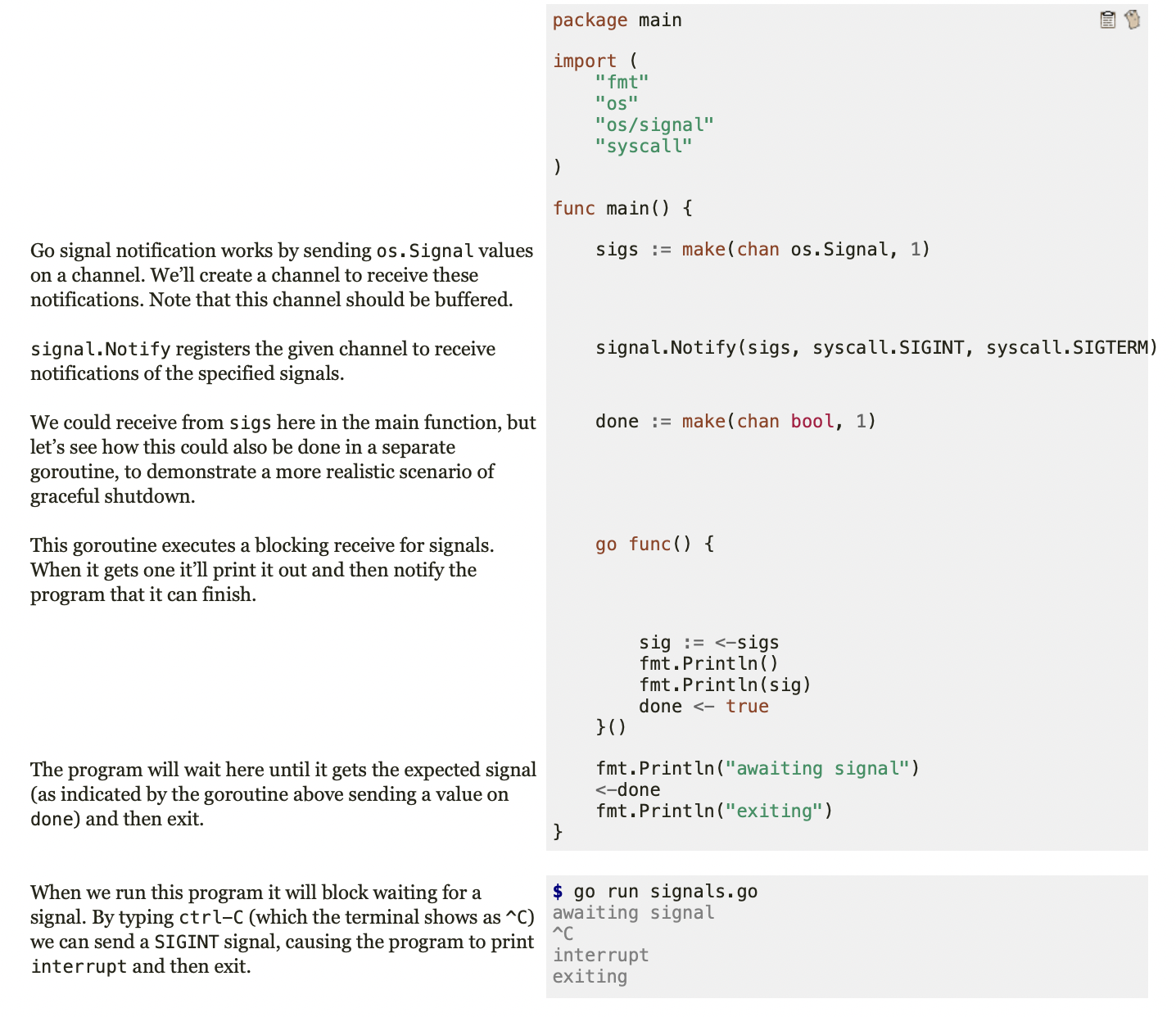...
Go by Example https://gobyexample.com/signals
| Code Block | ||
|---|---|---|
| ||
package main
import (
"fmt"
"os"
"os/signal"
"syscall"
)
func main() {
sigs := make(chan os.Signal, 1)
signal.Notify(sigs, syscall.SIGINT, syscall.SIGTERM)
done := make(chan bool, 1)
go func() {
sig := <-sigs
fmt.Println()
fmt.Println(sig)
done <- true
}()
fmt.Println("awaiting signal")
<-done
fmt.Println("exiting")
} | ||
| Code Block |
Another Example:
| Code Block |
|---|
package main
import (
"fmt"
"os"
"os/signal"
"syscall"
"time"
)
func main() {
//create channel that can receive OS signals
ch := make(chan os.Signal)
//Submit channel to the notify signal
signal.Notify(ch, syscall.SIGTERM, syscall.SIGINT)
//a go function to monitor signals in the background
go func() {
for sig := range ch {
switch sig {
case syscall.SIGTERM:
fmt.Println("sigterm received')
os.Exit(0)
case syscall.SIGINT:
fmt.Println("sigint received')
oS.Exit(0)
}
}
}()
time.Sleep(time.Minute)
} |
...
